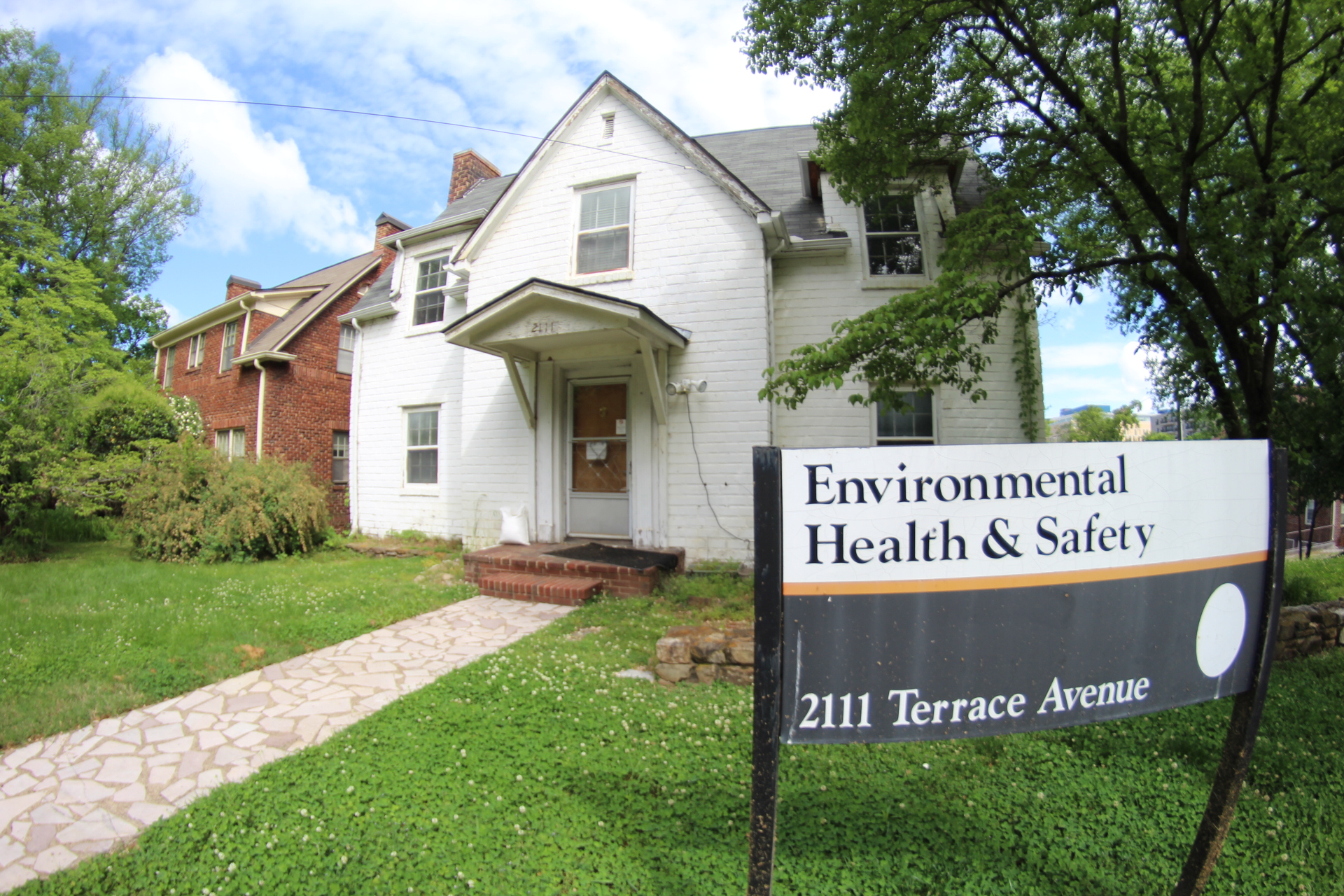
Approved for demolition, is there enough time to save General Neyland’s house?
KNOXVILLE — History and tradition run through the University of Tennessee’s campus and much of it is associated with General Robert Neyland.
The history and tradition help make college football iconic.
Neyland was the Vols’ head coach from 1926-1934 before the Army called him for active duty of one year in Panama. He rejoined UT as head coach from 1936-1940 and was recalled to military service again in 1941 and then finished his UT head coaching career from 1946-1952. He served as UT’s athletic director until he died in 1962.
There is a street named after him that runs parallel to the Tennessee River and the stadium that is named after him. A statue also stands at the gates of Neyland Stadium.
There is another piece of Neyland’s past that remains on UT’s campus: his former house at 2111 Terrace Avenue. Neyland’s lived there from 1927-1929. The house is scheduled to be demolished this spring.
Associated Press news stories of General Neyland’s first and last games as head coach living at 2111 Terrace Avenue from 1927-1929. UT was 26-0-3 overall and outscored their opponents 824-96 during that time. pic.twitter.com/ISQB40w8fA
— Dan Harralson (@danharralson) May 5, 2018
The University of Tennessee has owned the 2111 Terrace Avenue house since 1964 and it has been vacant for nearly two years. UT’s Department of Environmental Health and Safety occupied the house until May 10, 2016, but relocated and the department now occupies space in East Stadium Hall along Tee Martin Drive.
Tyra Haag, Director of Media Relations for The University of Tennessee, Knoxville, told Saturday Down South in April that “an exact date has not been set to take down 2111 Terrace Avenue.”
There are guidelines for houses that are older than 50 years that apply to Neyland’s former residence.
“As with all properties older than 50 years old, we must follow a state process that requires us to assess the significance of the structure, consult with the Tennessee Historical Commission (THC) and subsequently receive approval of the State Building Commission (SBC) for the demolition,” Haag said. “In late July 2016, the SBC approved the demolition. It’s just not possible to renovate the home due to excessive costs, and because of its condition, no one else can be assigned to the building.
“Several UT buildings are on the National Register of Historic Places, including Ayres Hall and the Tyson Alumni House. Both have significant historical and architectural value and are used as a classroom, administrative office and alumni gathering and service space and will be for the long term. A key goal in our master plan is to optimize use of our existing land to accommodate the growing needs of our campus within our institutional zone, recognizing the land constraints we have with the Tennessee River, major highways, downtown and the Fort Sanders neighborhood and Cumberland Avenue business district.”

The final days were closing of the historical landmark, but a discussion of a revival is taking place.
Another resident at 2111 Terrace Ave. was well-known artist Russell Briscoe. Briscoe was a resident for 30 years after Neyland. His granddaughter, Cathy Briscoe, is set to meet with UT for the initial stages in saving the house Tuesday. Ideas of saving the house will be discussed, including turning it into a museum.
This is intended for a research story on General Neyland’s old house at 2111 Terrace Avenue on UT’s campus. What would you like to see happen with the vacant house?
— Dan Harralson (@danharralson) May 3, 2018
With news of tearing down the house and now talks underway of a revival, members of the Neyland family discussed with Saturday Down South the importance of maintaining the landmark.
General Neyland’s son, Robert Neyland Jr., who played on the 1951 national championship team, gave his opinion on saving the house and turning it into a museum honoring his father.
“I am sure to a lot of people, our family too, that the house has meaning to it,” Neyland Jr. said. “If they decide to turn it into a museum, it would be a nice idea. That house he lived in was just barely before I was born in 1930, four years after he became the head coach. It would be nice to do something to the house to honor him.”
The home also hits home for the General’s grandson, Blake Neyland.
“For personal sake I am nostalgic,” Blake Neyland said. “I never really knew the General because he died when I was 2 years old, so any connection with the past with him means a lot to me. A museum would mean something to me with that house.”
Knoxville resident Greg Minton has launched a petition collecting signatures in securing the revival of the General’s former house.
Minton says that he “started a petition to save the home at 2111 Terrace Ave. because it deserves to be preserved and turned into a museum dedicated to one of the greatest coaches in college football history.”
https://twitter.com/gregm260/status/992242318282514432
Dan Harralson covers Tennessee football for SaturdayDownSouth.com. Follow Dan on Twitter @danharralson.







